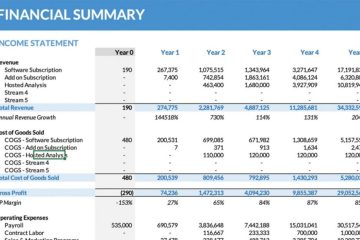Current trends in the financial services industry include the rise of digital banking, increased focus on cybersecurity, growing adoption of AI and machine learning, and the emergence of sustainable investing practices. The industry is also seeing a shift towards personalized customer experiences and the integration of blockchain technology for secure transactions.
These trends reflect the evolving needs of consumers and the push for innovative solutions in a rapidly changing market. As technology continues to reshape the financial services landscape, firms are adapting to meet the demands of a digital-first world. The increasing prevalence of mobile banking and contactless payment options demonstrates the industry’s commitment to convenience and accessibility.
Moreover, the emphasis on sustainable investing reflects a growing awareness of environmental, social, and governance (ESG) factors among investors. Altogether, these trends signify a dynamic and progressive future for the financial services sector.
Emerging Technologies In Financial Services
In today’s ever-evolving world, emerging technologies have a significant impact on the financial services industry. These technologies have transformed traditional financial practices, enabling companies to streamline their operations, enhance security, and improve customer experiences. In this article, we will explore two key emerging technologies shaping the financial services landscape: Blockchain and Cryptocurrency, as well as Artificial Intelligence and Machine Learning.
Blockchain And Cryptocurrency
Blockchain technology, often associated with cryptocurrencies like Bitcoin, has disrupted the financial industry with its decentralized and secure approach to digital transactions. With blockchain, financial institutions can eliminate intermediaries, reduce transaction costs, and enhance transparency while maintaining the integrity of financial data.
Furthermore, the introduction of cryptocurrencies has unlocked new opportunities for businesses and consumers alike. Cryptocurrencies offer fast and efficient cross-border transactions, lower fees, and increased accessibility to financial services. As cryptocurrencies gain mainstream acceptance, businesses are exploring various use cases such as digital asset management and international remittances.
Artificial Intelligence And Machine Learning
Artificial Intelligence (AI) and Machine Learning (ML) are revolutionizing the financial services industry by enabling companies to process vast amounts of data quickly and make accurate predictions. Through AI and ML algorithms, financial institutions can automate tasks, improve fraud detection, and provide personalized customer experiences.
- AI-powered chatbots and virtual assistants streamline customer interactions by providing instant responses to inquiries, assisting with account management, and offering personalized recommendations.
- ML algorithms analyze customer data to identify patterns, detect anomalies, and prevent fraudulent activities, ensuring a secure financial environment.
- Robo-advisors leverage AI and ML to offer automated investment advice, personalized portfolio management, and cost-effective financial planning services.
By harnessing the power of AI and ML, financial services providers can enhance operational efficiency, reduce costs, and deliver better customer experiences.
In conclusion, the financial services industry is witnessing a significant transformation through emerging technologies such as Blockchain and Cryptocurrency, as well as Artificial Intelligence and Machine Learning. These technologies offer immense opportunities for financial institutions to stay competitive, improve efficiency, and provide innovative services to their customers. Embracing these advancements will not only benefit businesses but also contribute to the global advancement of financial services as a whole.
Shift Towards Digital Banking
The financial services industry is experiencing a significant shift towards digital banking, as more consumers embrace the convenience and flexibility offered by digital financial solutions. This transformation is being driven by the rapid advancements in technology, providing customers with easy access to their financial accounts and the ability to conduct transactions from anywhere, at any time.
Mobile Banking Apps
Mobile banking apps have become a cornerstone of the digital banking revolution, allowing users to manage their finances, transfer funds, pay bills, and access a range of other banking services directly from their smartphones. These user-friendly apps provide a seamless and secure platform for conducting various financial transactions, contributing to the growing preference for digital banking among consumers.
Contactless Payment Solutions
Contactless payment solutions, such as digital wallets and mobile payment options, are gaining momentum as preferred methods of conducting transactions. The convenience and speed of contactless payments have made them popular among consumers, with an increasing number of businesses and financial institutions integrating these solutions into their operations. This trend aligns with the growing demand for secure and efficient payment options in the digital banking landscape.
Personalized Financial Services
Personalized financial services are at the forefront of the current trends in the financial services industry, with a growing emphasis on tailoring services and products to meet the unique needs of individual clients. This shift towards personalization comes in response to the increasing demand for bespoke financial solutions that cater to diverse financial goals and preferences.
Customized Investment Portfolios
Customized investment portfolios are becoming the cornerstone of personalized financial services, offering clients an opportunity to align their investments with their specific financial objectives, risk tolerance, and ethical considerations. By curating investment portfolios tailored to individual preferences, financial service providers can deliver more targeted and impactful investment outcomes for their clients.
Tailored Financial Advice
Tailored financial advice presents a vital aspect of personalized financial services, enabling advisors to offer bespoke recommendations and guidance that align with each client’s unique financial circumstances, goals, and aspirations. This approach fosters a deeper level of trust and engagement, as clients receive personalized strategies that address their distinct financial needs and aspirations.

Credit: www.theproche.com
Regulatory Changes Impacting The Industry
The financial services industry is constantly evolving, and regulatory changes are a significant driving force behind this transformation. In recent times, various regulations have been implemented to enhance transparency, secure customer data, and promote competition. This section delves into two key regulatory changes that are currently impacting the industry: GDPR Compliance and Open Banking Regulations.
Gdpr Compliance
The General Data Protection Regulation (GDPR) is a regulation introduced by the European Union (EU) to strengthen data protection laws and provide individuals with more control over their personal data. It has far-reaching implications for the financial services industry, as businesses that handle customer data, such as banks, insurance companies, and investment firms, must comply with its requirements.
Under GDPR, financial institutions are required to adopt measures to protect customer data, including implementing data security safeguards, obtaining explicit consent for data processing, and appointing a Data Protection Officer. Failure to comply with GDPR can lead to severe penalties, including hefty fines.
Financial organizations are required to assess their data processing practices and ensure transparency in how they handle and use customer information. This means that businesses must provide clear and concise privacy notices, informing customers about their data privacy rights and how their personal data is collected, used, and stored.
Open Banking Regulations
Open Banking has emerged as a game-changing regulation that ensures greater competition and innovation within the financial services industry. It enables customers to share their financial data securely with third-party financial service providers through the use of application programming interfaces (APIs).
Widely implemented in Europe and gaining momentum in other parts of the world, Open Banking holds significant advantages for both customers and financial institutions. Customers can benefit from accessing a wider range of financial products and services from different providers, all in one place. They can also benefit from personalized recommendations and improved access to loans, mortgages, and investment opportunities.
For financial institutions, Open Banking promotes competition by requiring them to share customer data with authorized third-party providers. This fosters innovation by encouraging the development of innovative financial products and services that cater to customer needs more effectively. It also empowers customers to have a better overview of their financial health and make more informed financial decisions.
Overall, the financial services industry is undergoing profound regulatory changes. The GDPR Compliance and Open Banking Regulations are two significant developments that are reshaping the industry, ensuring greater data security, transparency, and innovation. By embracing these changes, financial institutions can adapt to the evolving industry landscape and provide enhanced services to their customers.
Rise Of Fintech Startups
Fintech startups are revolutionizing the financial services industry with their innovative approaches and technological advancements.
Disrupting Traditional Banking
Fintech startups are disrupting the traditional banking sector by offering agile and customer-centric solutions.
- Streamlined processes
- Personalized services
- Efficient transactions
Focus On User Experience
User experience is at the forefront of fintech startups, creating seamless interactions for customers.
- Intuitive platforms
- Mobile-first approach
- Transparent communication
Sustainability And Esg Investing
Sustainability and Environmental, Social, and Governance (ESG) investing have become significant trends in the financial services industry. Companies are increasingly placing emphasis on Environmental, Social, and Governance factors when making investment decisions.
Environmental Initiatives
- Companies are implementing environmental initiatives to reduce carbon footprint.
- Investors are seeking opportunities in renewable energy and sustainable practices.
- Green bonds and environmental impact investing are gaining traction in the market.
Social Responsibility Integration
- Social responsibility is being integrated into investment strategies.
- Support for diversity and inclusion is becoming a key focus for investors.
- Companies are held accountable for their social impact on communities.
Globalization And Cross-border Transactions
In today’s interconnected world, the financial services industry is witnessing a significant shift towards globalization and cross-border transactions. As businesses expand their operations internationally, the need for seamless and efficient financial solutions becomes paramount. This article explores two key trends in this domain: International Payment Solutions and Currency Exchange Innovations.
International Payment Solutions
International payment solutions have become a crucial aspect of the financial services industry, enabling businesses and individuals to send and receive money across borders without the hassle of traditional banking methods. With the advent of digital finance, companies now have access to a wide range of international payment platforms that offer secure and fast transactions.
These solutions utilize advanced technologies such as blockchain and electronic wallets, allowing for instant transfers while ensuring utmost security. Businesses can now process payments in different currencies, eliminating the need for costly currency conversions. The flexibility of international payment solutions has not only simplified cross-border transactions but has also opened up new avenues for businesses to tap into global markets.
Currency Exchange Innovations
Currency exchange plays a crucial role in cross-border transactions, and recent trends in the financial services industry have witnessed significant innovations in this area. Traditional currency exchange methods are often expensive, time-consuming, and prone to fluctuations in exchange rates.
Thankfully, innovative technologies have emerged to address these challenges. Currency exchange platforms now offer real-time rates, ensuring transparency and accuracy in transactions. Additionally, these platforms provide users with the ability to lock-in exchange rates in advance, mitigating the risk of sudden fluctuations.
Furthermore, advancements in artificial intelligence and machine learning have streamlined the currency exchange process. These technologies analyze historical data, economic trends, and market indicators to provide users with personalized insights and recommendations, making foreign exchange transactions more informed and profitable.
In conclusion, globalization and cross-border transactions are shaping the future of the financial services industry. International payment solutions and currency exchange innovations are revolutionizing the way businesses conduct transactions in the global marketplace. As businesses continue to expand globally, they must embrace these trends to stay competitive and thrive in the interconnected world of finance.

Credit: magistralconsulting.com

Credit: www.insiderintelligence.com
Frequently Asked Questions On What Are The Current Trends In The Financial Services Industry
What Are The Financial Services Predictions For 2024?
Financial services predictions for 2024 suggest increased focus on digital banking, fintech innovation, and personalized customer experiences. Additionally, AI and blockchain will play significant roles in enhancing security and efficiency. Moreover, sustainable investing and ESG considerations are expected to gain prominence in the market.
What Is The Biggest Issue Facing The Financial Industry Today?
The biggest issue facing the financial industry today is cybersecurity threats and data breaches. It poses a risk to sensitive financial information and undermines trust in the industry. Implementing robust security measures is crucial to safeguarding financial data and maintaining customer confidence.
How Is The Financial Services Industry Changing?
The financial services industry is evolving with technological advancements, digitalization, and changing customer demands. Fintech innovations, such as online banking and robo-advisors, are redefining the industry. Additionally, regulatory changes and the rise of sustainable and inclusive finance are shaping the future of financial services.
What Are The Financial Market Trends For 2024?
Financial market trends for 2024 include digital asset growth, sustainable investing, market volatility, and increased regulatory scrutiny.
What Are The Technology Innovations Shaping The Financial Services Industry?
Technological advancements like AI, blockchain, and cloud are transforming the financial sector.
Conclusion
Keeping up with the latest trends is crucial in the ever-evolving financial services industry. From the rise of digital banking to the increasing demand for personalized financial advice, professionals in this field need to stay ahead of the game. Embracing technology, focusing on customer experience, and adapting to regulatory changes are key factors for success in this competitive landscape.
By staying informed and flexible, financial service providers can continue to meet the evolving needs of their clients and drive innovation in the industry.

